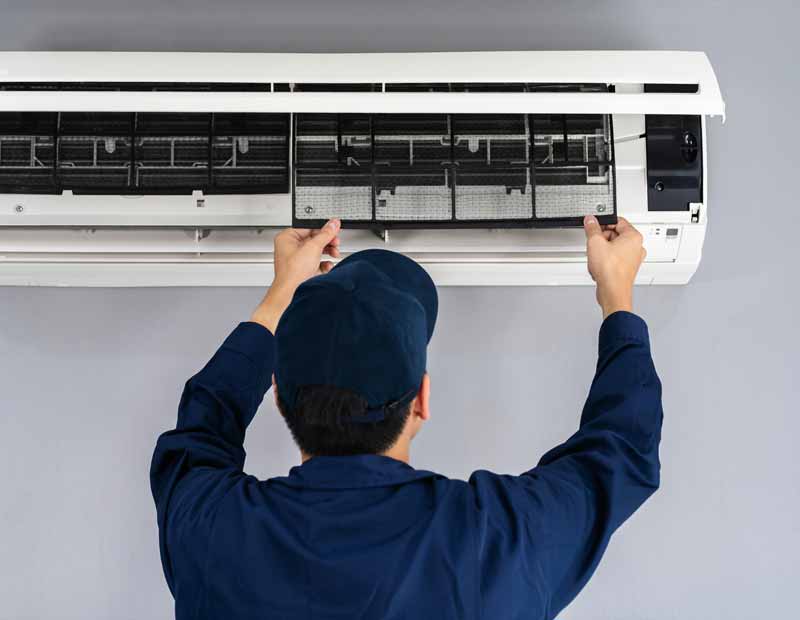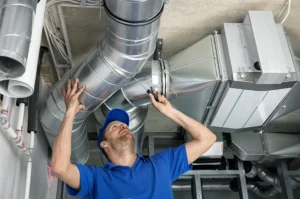A quiet, efficient air conditioning unit is often taken for granted until it becomes unexpectedly loud.
Suddenly, the peaceful hum transforms into an intrusive racket, disrupting comfort and potentially indicating underlying issues. When your AC unit starts making excessive noise, it’s crucial to understand the potential causes and seek appropriate solutions to avoid further complications.
- Common Causes of Loud AC Units:
– Loose or Misaligned Parts: Over time, vibrations from regular operation can loosen components such as fan blades, screws, or ductwork, leading to rattling or banging noises.
– Dirty or Clogged Components: Accumulation of dirt, debris, or dust within the unit’s internal parts, particularly the fan blades or air filters, can obstruct airflow and cause the system to work harder, resulting in increased noise levels.
– Faulty Motor: A malfunctioning motor can produce grinding, screeching, or whirring sounds, indicating potential issues with bearings, belts, or other internal mechanisms.
– Refrigerant Leaks: Hissing or bubbling noises may indicate refrigerant leaks, which not only compromise cooling efficiency but can also pose health risks and environmental hazards. - Impact of Noise Levels:
a. Comfort Disruption: Loud AC units can disturb occupants’ comfort and productivity, especially in residential or commercial settings where quiet environments are desired. b. Potential Damage: Ignoring noisy AC units can lead to further damage and escalate repair costs over time, as minor issues may evolve into major malfunctions if left unaddressed.
c. Energy Efficiency: Excessive noise often correlates with decreased efficiency, as the system may be working harder to compensate for underlying problems, resulting in higher energy consumption and utility bills. - Solutions and Maintenance Tips:
a. Regular Maintenance: Scheduled inspections and maintenance by HVAC professionals can help detect and address potential issues before they escalate, ensuring optimal performance and minimizing noise levels.
b. Cleaning and Lubrication: Regularly clean or replace air filters, remove debris from outdoor units, and lubricate moving parts to reduce friction and noise.
c. Tighten Loose Components: Check and tighten loose screws, bolts, or fan blades to prevent unnecessary vibrations and rattling noises.
d. Professional Repairs: For complex issues such as motor problems or refrigerant leaks, seek assistance from qualified HVAC technicians to diagnose and repair the underlying causes effectively. e. Consider Replacement: If the AC unit is old, inefficient, or experiencing recurrent issues despite repairs, consider investing in a newer, quieter model equipped with advanced features and improved technology.
A noisy air conditioning unit is not just an annoyance; it can signify underlying issues that require attention to maintain comfort, efficiency, and safety. By understanding the common causes of loud AC units and implementing proactive maintenance strategies, homeowners and businesses can ensure smooth operation, minimize disruptions, and prolong the lifespan of their cooling systems. When in doubt, consulting with HVAC professionals can provide valuable insights and solutions tailored to specific needs, ensuring a quieter and more comfortable indoor environment for all.
Contact Gem Heating & Air Conditioning for your Air conditioning repair needs!




